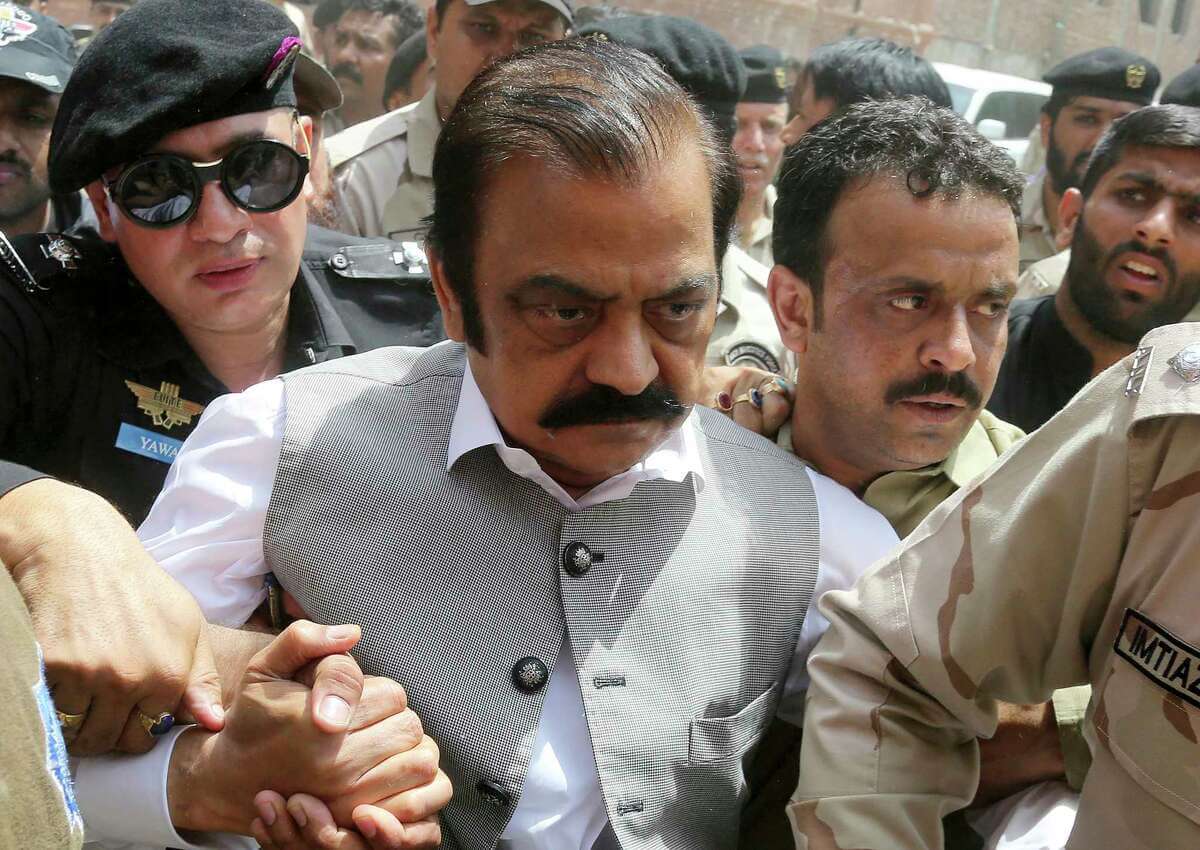Interior Minister Rana Sanaullah alleged that Pakistan has “irrefutable evidence” of India’s involvement in “terror financing and subversive activities” in its territory.
Speaking at a press conference alongside Counter-Terrorism Department (CTD) Additional Inspector-General Punjab Imran Mehmud on Tuesday, Sanaullah vowed to take up India’s involvement in “fanning terrorism” at international organisations, including the United Nations.
The interior minister noted that Pakistan has struggled with terrorism for several decades, with attacks targeting civilians, army personnel, journalists, political leaders, mosques, and other important buildings.
According to the state-owned Associated Press of Pakistan, he stressed that India is involved in “every form of terrorism in Pakistan” and “acting just like an enemy.”
In addition, he accused India of “[wooing] the international community and then [engaging] in terrorist activities.”
This is a matter of internal security and we are initiating the process to take it up at the International level. Foreign Minister @BBhuttoZardari alongside the Secretary of Foreign Affairs will highlight the issue of India's involvement at different world forums. (2
— Rana SanaUllah Khan (@RanaSanaullahPK) December 13, 2022
He also criticised India’s activities in Kashmir and accused New Delhi of sponsoring Tehreek-i-Taliban in Pakistan.
Sanaullah cited the “spy” Kulbhushan Yadav’s arrest in Pakistan as “undeniable evidence” of India’s terrorist activities. In addition, he claimed that India has sent over $0.8 million “to spread terrorism in Pakistan through different channels.”
In this respect, he affirmed that the government will now keep a close eye on all Pakistanis who are deported from India to ensure that they do not have links with Indian intelligence agencies.
In particular, Sanaullah argued that India’s Research and Analysis Wing (RAW) intelligence agency had orchestrated an attack in Johar Town last June.
The blast occurred outside terrorist Hafeez Saeed’s house in Lahore and killed three people, including two police officers, and injured 22 others. Seven houses and 12 vehicles were also damaged in the blast. At the time, no terror group claimed responsibility for the attack.
#JUSTIN Pakistan claims to unearth an Indian intelligence network involved in Johar town blast 2021.India behind Lahore’s Johar Town blast that killed 3, Says Interior Minister of Pakistan @RanaSanaullahPK The blast took place on 23rd June 2021 near the residence of Hafiz Saeed https://t.co/DnfvQST8p7 pic.twitter.com/llw8wTNcSM
— Ghulam Abbas Shah (@ghulamabbasshah) December 13, 2022
Sanaullah said the explosion was triggered by Peter Paul David, who left a time bomb with 200 kilograms of explosives near the location. The bomb detonated after an hour.
He claimed that David had “direct links” with RAW agents Ali Budaish and Bablu Srivastava, who financed the attack.
“We have also tracked down three other RAW agents and got issued their red warrants through Interpol,” he remarked.
Following the attack, erstwhile Information Minister Fawad Chaudhry and then-National Security Advisor Moeed Yusuf said Indian citizen with links to RAW was responsible. Likewise, the Punjab CTD’s investigation resulted in the arrest of Sam ul Haq, who it claimed was leading RAW’s activities in Pakistan.
India has not yet responded to Sanaullah’s allegations.
Punjab CTD chief Imran Mehmood in a press conference tells that 6 #Indian intelligence #RAW agents were directly involved in #JoharTown #Lahore blast killing 3 people last year. He said more then $0.8 million were sent to some Pakistanis who helped them in terror activities. pic.twitter.com/P9xvD8U91O
— Azaz Syed (@AzazSyed) December 13, 2022
Hafiz Saeed, who was not at home at the time of the attack, is the chief of the banned Jama’at-ud-Da’wah and the founder of Lashkar-e-Taiba (LeT).
He orchestrated the 2008 Mumbai attack, during which 12 police officers, 122 Indian civilians, and 26 foreign nationals died, and a further 291 people were injured. The United States Department of Justice has already designated him as a terrorist and imposed a $10 million bounty on his head.
Pakistani authorities arrested him in 2019, following which he was convicted for several crimes related to terrorist activities and terror financing and given a 31-year prison term.
In October, China blocked proposals by India and the US in the UNSC to designate LeT leaders Shahid Mahmood and Saeed as global terrorists under the UNSC 167 sanctions list.
During the “No Money for Terror” conference in New Delhi last month, Indian Prime Minister Narendra Modi raised concern about state-sponsored terrorism, asserting that certain governments have adopted terror financing as their foreign policy.
Indian External Affairs Minister S. Jaishankar, too, said, “Lashkar-e-Taiba, Jaish-e-Mohammad or Harkatul Mujahideen and their proxies thrive on assured financial support to commit barbaric acts of terror on Indian soil.”
Similarly, Indian Home Minister Amit Shah argued for the need to impose an “economic crackdown” against countries that provide a safe haven for terrorism. He proposed that India set up a Permanent Secretariat for the conference so that it remains focused on tackling such threats.
Pakistan, however, has rejected the Indian officials’ “incorrigible and incurable” attempts to malign its commitment to counterterrorism, pointing to its recent removal from the Financial Action Task Force’s grey list.

